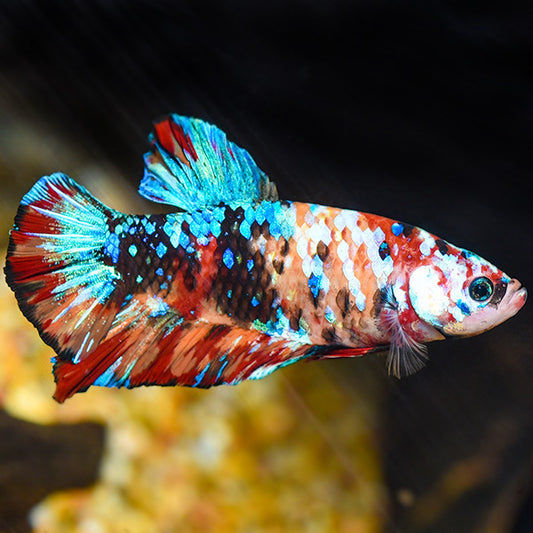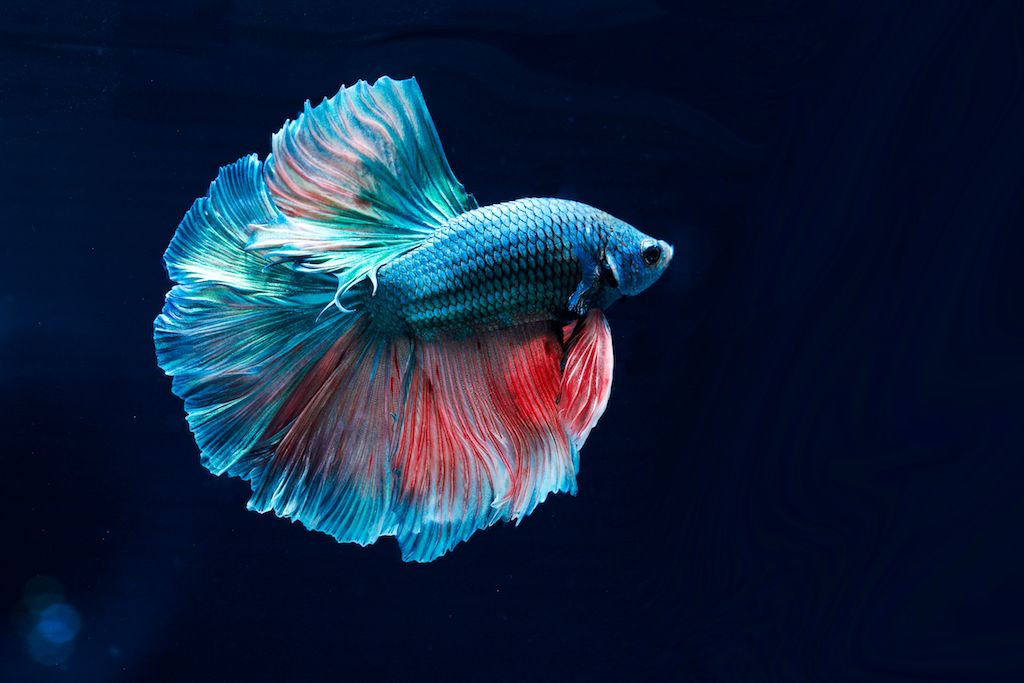Comprehending Betta Fish Habits: What Every Owner Ought To Know
Comprehending Betta Fish Habits: What Every Owner Ought To Know
Blog Article
The Ultimate Overview to Betta Fish Care: Important Tips for Preserving a Healthy and Growing Aquarium Environment
Efficient Betta fish care requires a comprehensive understanding of their distinct ecological and physical requirements. Establishing a suitable aquarium starts with choosing the right container dimension and making sure optimum water problems, which are crucial for the health and health of your Betta. Understanding proper feeding methods and producing a conducive habitat can considerably impact your fish's vigor and behavior. As you consider these foundational facets, it becomes clear that preserving a prospering aquarium environment calls for interest to information and recurring commitment. What specific strategies will you apply to improve your Betta's lifestyle?
Picking the Right Tank
Picking the proper tank for your Betta fish is critical to ensuring its wellness and wellness. Bettas flourish in settings that imitate their natural habitats, which typically are composed of calm, cozy waters. A tank dimension of a minimum of five gallons is suggested to provide ample swimming area, as smaller sized containers can bring about stress and health problems for these lively fish.
When picking a tank, consider the tank's form and filtration system. A rectangular tank is more effective to a dish, as it uses more area for oxygen exchange. Furthermore, a reliable filtering system is necessary to maintain water quality and decrease the regularity of water modifications (betta fish). It's important to choose a filter with a mild circulation, as Bettas are not solid swimmers and might battle versus strong currents.
Temperature level law is one more essential factor; Bettas favor water temperatures between 76 ° F and 82 ° F. Investing in an excellent heating unit will make sure that the water stays within this range, advertising a healthy and balanced and active lifestyle for your Betta. Providing ideal tank decors and hiding areas will certainly assist lower anxiety and encourage all-natural behaviors, additionally enhancing your Betta's health.
Maintaining Water Quality
Preserving optimum water quality is necessary for the wellness and longevity of Betta fish. This needs routine surveillance of various parameters, including temperature level, pH, ammonia, nitrite, and nitrate levels.
The pH degree should preferably fall in between 6.5 and 7.5. Routine screening utilizing a trusted water screening kit can aid ensure these specifications stay within the proper varieties. Ammonia and nitrite levels ought to always be at 0 ppm, as even low concentrations can be toxic to Betta fish. Nitrate levels should be kept under 20 ppm to avoid long-lasting health and wellness problems.
Normal water modifications are important to maintaining water quality. It is advised to transform 25-50% of the container water weekly, depending upon the storage tank size and equipping degrees. Utilizing a top quality water conditioner can assist get rid of harmful chemicals from faucet water, guaranteeing a secure setting. Furthermore, incorporating a robust filtration system can assist in maintaining water quality and quality, providing a much healthier habitat for your Betta fish.
Perfect Feeding Practices
Offering a well balanced diet plan is essential for the health and lively coloration of Betta fish, as their dietary requirements play a significant function in their overall wellness. Betta fish are meat-eating by nature, calling for a diet high in healthy protein. A combination of high-quality pellets, frozen or real-time foods such as bloodworms, brine shrimp, and daphnia can supply the important nutrients they require.
Feed your Betta fish 2 to three times a day, providing just what they can consume within a couple of mins to avoid overfeeding and preserve water top quality. Overfeeding can lead to weight problems and wellness issues, including swim bladder illness. It is necessary to check check this site out their dietary consumption and change section dimensions accordingly.
Along with protein, a balanced diet ought to consist of vitamins and minerals to promote optimal health and wellness. Take into consideration supplementing their diet with premium flakes or pellets particularly created for Betta fish, as these often include needed ingredients.

Producing an Ideal Habitat
:strip_icc()/how-long-do-bettas-live-1380782-hero-813aa5d34bab48cdb333edfe02471dad.jpg)
Water quality is critical; preserve a temperature level between 76 ° F and 82 ° F, and make sure the pH degree ranges from 6 - betta fish.5 to 7.5. Regular water modifications of 25-50% weekly will certainly help keep toxic substances away and guarantee a steady setting
Incorporating plants and concealing places is important, as Betta fish are normally territorial and delight in having areas to discover and retreat. Live or silk plants, together with caves and ornaments, can produce a stimulating atmosphere.

Routine Wellness Checkups
Carrying out normal health and wellness checkups is important for guaranteeing the well-being of Betta fish, as early discovery of prospective issues can protect against major illness. These checkups need to incorporate a comprehensive evaluation of the fish's physical condition, behavior, and ecological aspects.
Begin by observing the Betta fish for any type of signs of distress, such as sleepiness, read loss of appetite, or unusual swimming patterns. In addition, inspect the fins and body for indications of staining, sores, or fin rot, which can indicate infections or bloodsuckers. Frequently keeping track of the water top quality in the aquarium is equally important; parameters such as pH, ammonia, nitrite, and nitrate levels must be kept within optimal varieties to stop tension and health problem.
Furthermore, think about keeping a log of wellness monitorings and water top quality examinations. Prompt intervention can make a significant difference in the recuperation of your Betta fish, ensuring a long and healthy life in a well-maintained aquarium setting.
Conclusion
In conclusion, successful Betta fish care hinges on developing and preserving an optimum aquarium atmosphere. By complying with these guidelines, aquarists can promote the health and vibrancy of Betta fish, inevitably resulting in a prospering water community.
Report this page